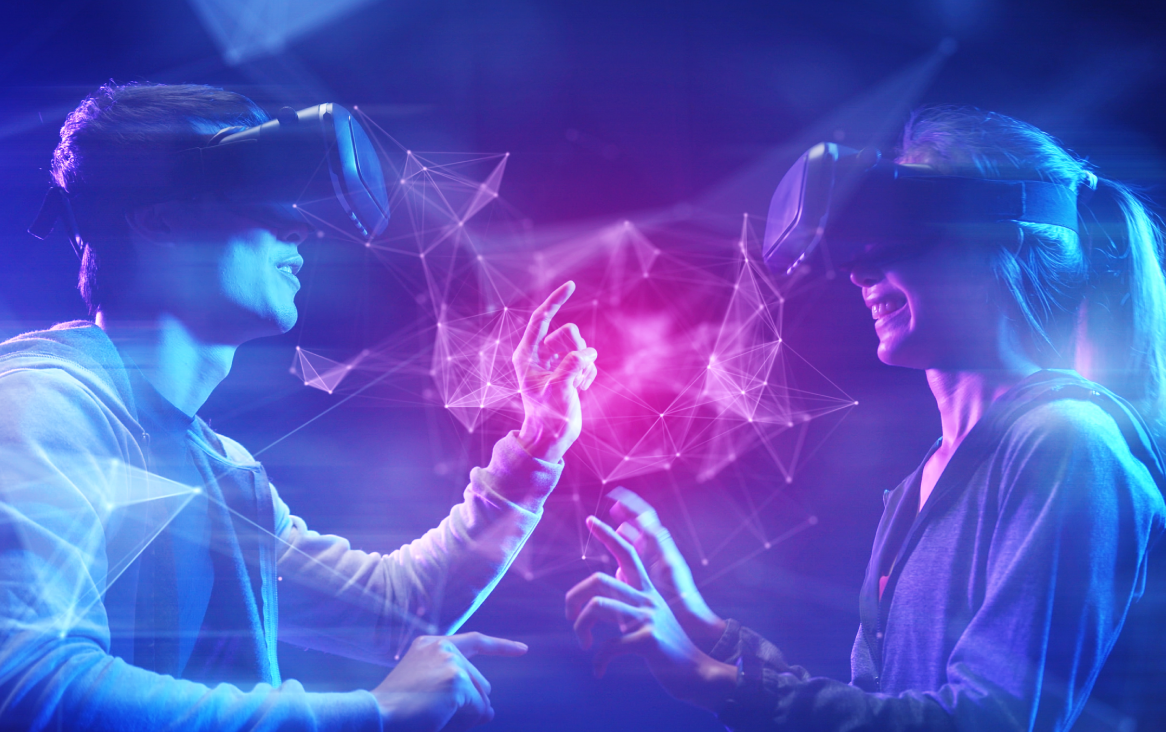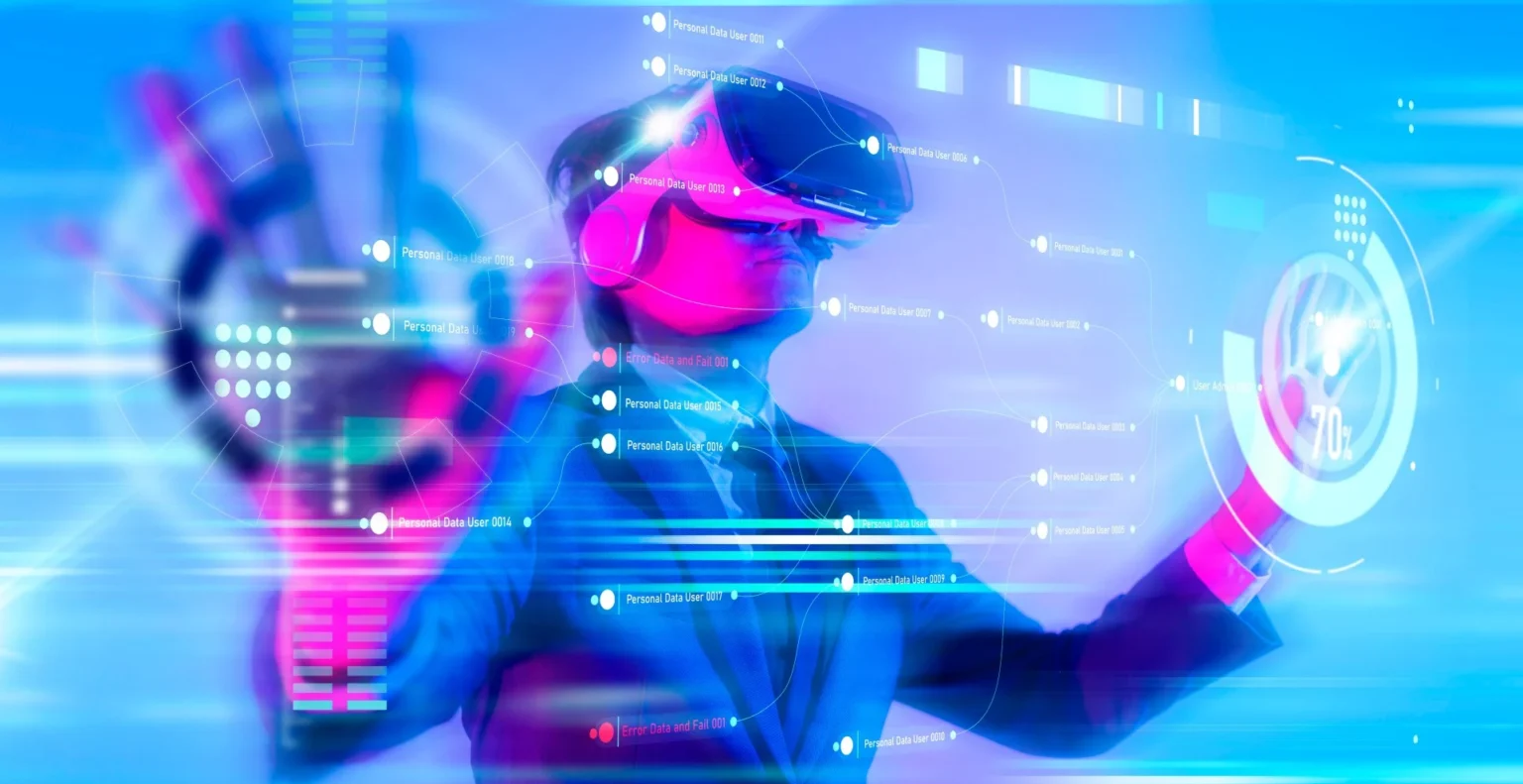Metaverse Transforming HR As we head into 2025, the metaverse is no longer a buzzword limited to tech aficionados or gaming platforms. Its roots are clearly in the business sector, and HR tech is among the most significant changes in progress. From virtual recruitment to immersive onboarding, the metaverse is transforming how businesses interact with staff, acquire expertise, and encourage teamwork. The digital workplace is changing quickly, and the metaverse’s inclusion is shaping the next generation of work culture in HR.
Metaverse Hiring Revolution
Companies are using the metaverse to transform the hiring process in the very competitive employment market of nowadays. Virtual recruitment fairs housed in metaverse environments let companies meet worldwide candidates in immersive 3D surroundings. Throughout interviews, candidates can negotiate digital office replicas, engage with possible colleagues, and even finish skill-based simulations. This improves applicant experience as well as provides hiring managers with a more thorough understanding of soft skills and cultural fit, elements that conventional video conferences sometimes overlook.
Big companies and tech-forward startups are already using these ideas. Accenture, for instance, has developed a metaverse place known as the “Nth Floor,” where fresh graduates are taught in a totally immersive setting. Likewise, Meta and Microsoft are creating virtual office solutions combining augmented reality (AR) with virtual reality (VR) to provide distant collaboration with a more human and connected experience.
Metaverse Transforms HR in 2025
Thanks to metaverse-enabled HR systems, employee onboarding in 2025 will be more engaging and individualized than ever. Through gamified simulations, new employees may now perform interactive tasks, visit virtual workplaces, and investigate business culture. This technology removes regional obstacles and guarantees a consistent onboarding experience for worldwide companies.

Training courses have also been overhauled. From dispute resolution to leadership development, virtual reality modules let staff members rehearse real-world events in risk-free settings. These experiential learning events are gaining great involvement and retention rates in industries such as retail, manufacturing, and healthcare. Through dynamic, hands-on experiences, learning in the metaverse fits many learning styles and improves knowledge absorption.
Metaverse Boosts Remote HR Collaboration
HR departments now center collaboration mostly on the change to hybrid and remote work. Though useful, classic apps like Zoom and Slack sometimes lack the emotional connection of real contact. By providing spatial settings where teams may gather, collaborate, and brainstorm as avatars, metaverse platforms like Microsoft Mesh and Meta’s Horizon Workrooms are filling in this void.
These virtual offices replicate the subtleties of in-person contact, like body language and spatial awareness, facilitating distant meetings more naturally and effectively. Teams might roam between breakout rooms, co-create in real time using 3D whiteboards, and replicate genuine office dynamics—all without leaving their homes. For HR managers, this creates fresh opportunities to encourage teamwork, raise morale, and lower remote work weariness.
Metaverse: Redefining HR with Inclusivity & Data
Though less well-known, the metaverse’s ability to create more inclusive workplaces has equally transforming power in HR technology. Virtual worlds can be made to reduce bias and allow a spectrum of physical and cognitive capacities. Workers can create avatars that accurately represent their identities or try out novel means of self-expression in secure, nonjudgmental surroundings.
Data-driven analytics included in metaverse systems also enable HR departments to make real-time measurements of performance, well-being, and engagement. This degree of awareness fosters more fair decision-making and facilitates the creation of customized growth plans fit for particular demands.
Metaverse Challenges in HR
Even with all the benefits, including the metaverse in HR technology, presents difficulties. Real concerns include data privacy, digital tiredness, and adoption expense. Not every employee might have access to the necessary VR devices or internet infrastructure, therefore inadvertently widening the digital divide. HR managers must thus find a balance between creativity and accessibility so that metaverse projects are inclusive and safe. Another area needing focus is regulatory compliance. As more personal data is handled in immersive environments, organizations must follow worldwide privacy standards like GDPR and guarantee that cybersecurity protocols are current.
Metaverse: Transforming HR for a Connected Future
Looking ahead, the metaverse in HR technology is about humanizing the digital workplace rather than only about showy virtual environments or trendy devices. The metaverse provides tools to create meaningful relationships, simplify procedures, and empower staff as businesses negotiate a terrain molded by flexibility, diversity, and technology upheaval.
Forward-looking companies embracing metaverse technologies by 2025 are redefining employee experience standards. HR is about building healthy digital ecosystems where people may flourish, progress, and feel connected—regardless of their location in the world—not only about administration.


